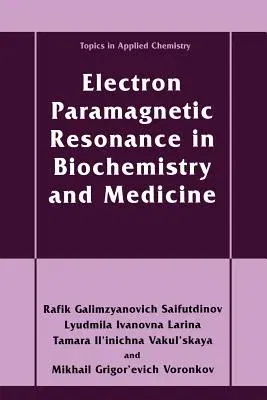Rafik Galimzyanovich Sajfutdinov
(Author)Electron Paramagnetic Resonance in Biochemistry and Medicine (Softcover Reprint of the Original 1st 2001)Paperback - Softcover Reprint of the Original 1st 2001, 23 March 2013

Qty
1
Turbo
Ships in 2 - 3 days
In Stock
Free Delivery
Cash on Delivery
15 Days
Free Returns
Secure Checkout
Part of Series
Topics in Applied Chemistry
Print Length
268 pages
Language
English
Publisher
Springer
Date Published
23 Mar 2013
ISBN-10
1475786891
ISBN-13
9781475786897
Description
Product Details
Authors:
Book Edition:
Softcover Reprint of the Original 1st 2001
Book Format:
Paperback
Country of Origin:
NL
Date Published:
23 March 2013
Dimensions:
23.39 x
15.6 x
1.52 cm
ISBN-10:
1475786891
ISBN-13:
9781475786897
Language:
English
Location:
New York, NY
Pages:
268
Publisher:
Series:
Weight:
408.23 gm

